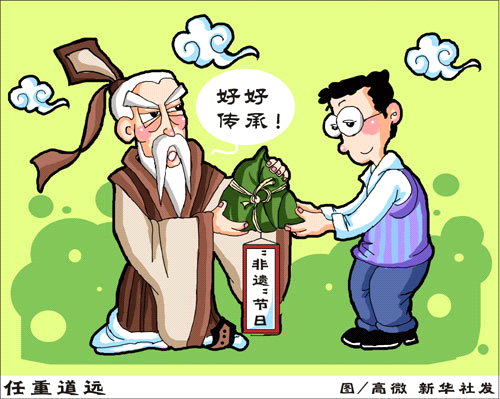作文在英语一占比30%,英语二占比25%,因此大家都比较注重考研英语作文的复习。考研英语作文在写作时,常常会有出现各种各样的问题,为帮助考生避免雷区,文都考研为大家带来了考研英语一图画作文:文化传承类。
一、考研英语一历年真题一览
| 考试年份 | 考试话题 | 话题范围 |
| 1998 | *Business Promise and Guarantee | 社会生活 |
| 1999 | *Human Population and Wildlife Protection | 生态环境 |
| 2000 | *World Commercial Fishing | 生态环境 |
| 2001 | *Love | 社会生活 |
| 2002 | *Culture – National and International | 社会生活 |
| 2003 | *Youth Development | 心态修养 |
| 2004 | *The End is also a New Start | 心态修养 |
| 2005 | *A Football Match of Taking Care of Parents | 社会生活-消极类 |
| 2006 | *The Blind Worship of Stars | 社会生活-消极类 |
| 2007 | *Self-confidence | 心态修养-消极类 |
| 2008 | *Cooperation | 社会生活-积极类 |
| 2009 | *Internet & Interpersonal Relationship | 社会生活-中性类 |
| 2010 | *Cultural Intergradations | 社会生活-积极类 |
| 2011 | *During the Trip | 生态环境-消极类 |
| 2012 | *To Be Optimistic | 心态修养-中性类 |
| 2013 | *To Make a Choice | 心态修养-中性类 |
| 2014 | *To Show our Gratitude and Care to Parents | 社会生活-积极类 |
| 2015 | *The Effect of Mobile Communication on us | 社会生活-消极类 |
| 2016 | *Setting Good Examples for the Children | 社会生活-积极类 |
| 2017 | Having Books and Reading Books | 人生价值-中性类 |
由以上可以,文化类的话题在历年真题中虽仅出现过两次(2002年和2010年),但因为考生对此话题并不悉知,虽然审图和确定主旨并不困难,但文章的写作生成却着实会难倒大部分学生,为此,笔者梳理了此类话题常用词汇并辅以范文,希望可帮助考生掌握此类话题的写作。
二、文化类话题常用词汇
1、文化多元化:cultural diversity
2、文化冲突:cultural conflict
3、文化宝藏:cultural treasures
4、跨文化交流:cross-cultural communication
5、精神文明:spiritual civilization
6、历史和文化遗产:cultural and historical heritages
7、人文历史遗址:humane historical sites
8、文物:cultural relics
9、保护文化遗产:preserve the cultural relics
10、人类文明:human civilization
11、文化摇篮:cradle of culture
12、主流文化:mainstream culture
13、文化传统:cultural traditions
14、风土人情:local customs and practices
15、坚持传统:adhere to the tradition
16、弘扬民族文化:carry forward national culture
17、文化需求:cultural needs
18、民族特性和价值观:national identity and value
19、消除偏见和误解:remove prejudice and misunderstanding
20、文化退化:cultural devolution
三、例证范文
Directions:
Write an essay of 160-200 words based on the following drawing. In your essay, you should
1) describe the drawing briefly,
2) explain its intended meaning, and
3) give your comments.
You should write neatly on ANSWER SHEET. (20 points)

Unfolded in the elaborately-painted set of drawings is a soul-stirring scene: delivering a rice dumpling labeled as “festival of the intangible cultural heritage” to a youngster, a greybeard dressed in traditional costume emphasizes: “traditions are supposed to be inherited and advocated from one generation to another.”
Apparently, what the cartoonist attempts to emphasize is the inheritance of traditional culture. Like tangible cultural heritages such as the Great Wall and the Forbidden City, intangible cultural heritages like Peking Opera and celebration of traditional festivals are equally crucial. As a country consisting of a great diversity of ethnic groups and with time-honored history and civilization, China abounds in intangible cultural heritages. Cultural heritages connect modern people with the historical past, allowing them to acquire a cultural and historical identity. Without cultural heritages, we would be rendered absolutely rootless and we would find it hard to cope with challenges at present and in the future.
However, the modernization process poses mounting threats to intangible heritages. It is also pathetic to see elderly people in possession of such legacies pass away without transmitting them to the younger generation. Confronted with those challenges, we should both preserve and rejuvenate our ancestral heritages so that we can help contribute to the cultural diversity of the world and return to our spiritual homeland in this age of impersonal science and technology.
考生们在进行考研英语练习时,要不断总结复习思路,考研复习效率。更多考研英语复习资料,访问文都考研网考研英语频道查看。







 文都考研微信
文都考研微信



